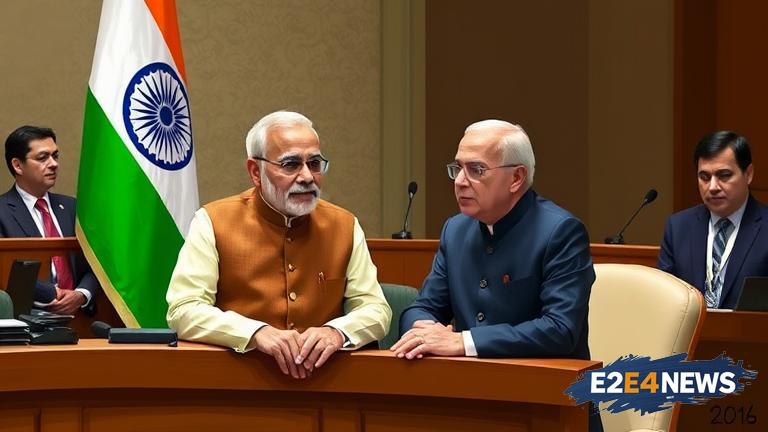India has requested a travel ban waiver from the United Nations Security Council (UNSC) for the visit of Afghanistan’s Foreign Minister, Amir Khan Muttaqi, scheduled to take place this week. The visit is aimed at discussing bilateral relations and regional security issues. The Indian government has been engaging with the Taliban regime in Afghanistan, despite initial reservations, to protect its interests in the region. The visit is seen as a significant development in India’s efforts to establish a dialogue with the Taliban. The Afghan Foreign Minister is expected to meet with Indian External Affairs Minister, S. Jaishankar, to discuss a range of issues, including trade, investment, and security. The two countries are also expected to discuss the issue of terrorism, with India seeking assurances from the Taliban that they will not allow terrorist groups to operate from Afghan soil. The visit comes at a time when the Taliban regime is facing international pressure to form an inclusive government and respect human rights. India has been critical of the Taliban’s human rights record, but has also been engaging with them to promote its regional interests. The UNSC travel ban waiver is required as the Afghan Foreign Minister is subject to international sanctions. The waiver is expected to be granted, given the importance of the visit for regional security and stability. The visit is also seen as an opportunity for India to promote its economic interests in Afghanistan, including the development of infrastructure and trade. The two countries are expected to discuss the possibility of India investing in Afghanistan’s mining sector, as well as the development of the Chabahar port in Iran, which is seen as a key transit point for trade between India and Afghanistan. The visit is also expected to focus on regional security issues, including the threat posed by terrorist groups such as the Islamic State and Al-Qaeda. India has been seeking to strengthen its ties with Afghanistan, as well as with other countries in the region, to counter the influence of Pakistan and China. The visit is seen as a significant development in this regard, and is expected to pave the way for further engagement between India and Afghanistan. The Indian government has been facing criticism from opposition parties for its engagement with the Taliban, but the government has defended its approach, saying that it is necessary to protect India’s interests in the region. The visit is also expected to be watched closely by other countries in the region, including Pakistan, which has been seeking to strengthen its ties with the Taliban regime. The development is seen as a significant shift in India’s approach to Afghanistan, and is expected to have implications for regional security and stability. The visit is also expected to focus on the issue of humanitarian aid, with India seeking to provide assistance to Afghanistan to address the humanitarian crisis in the country. The two countries are expected to discuss the possibility of India providing food and medical aid to Afghanistan, as well as supporting the country’s reconstruction efforts. The visit is seen as a significant development in India’s efforts to promote regional security and stability, and is expected to pave the way for further engagement between India and Afghanistan.
